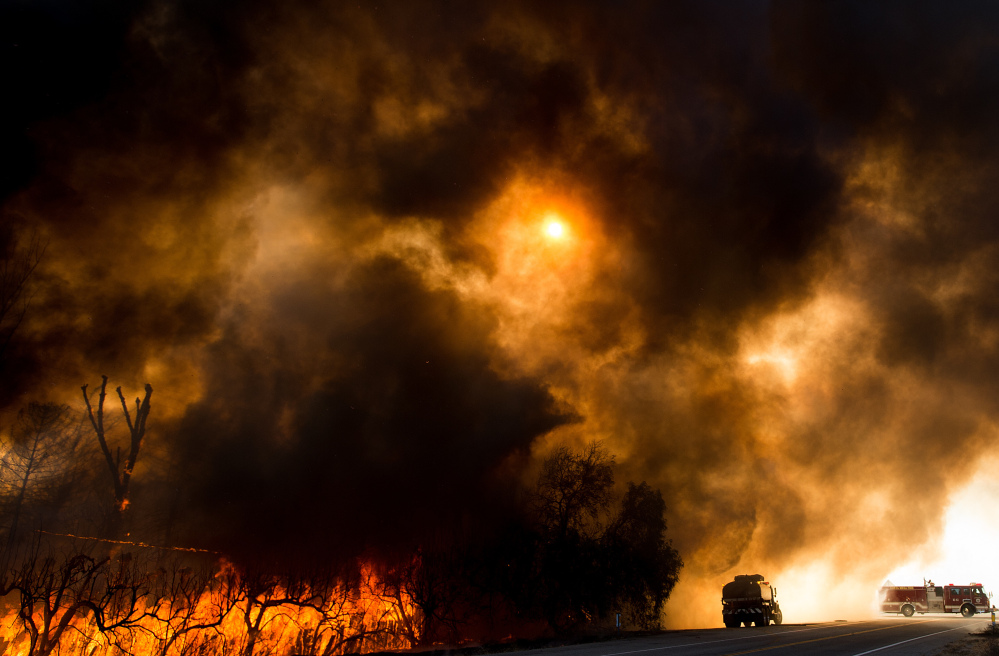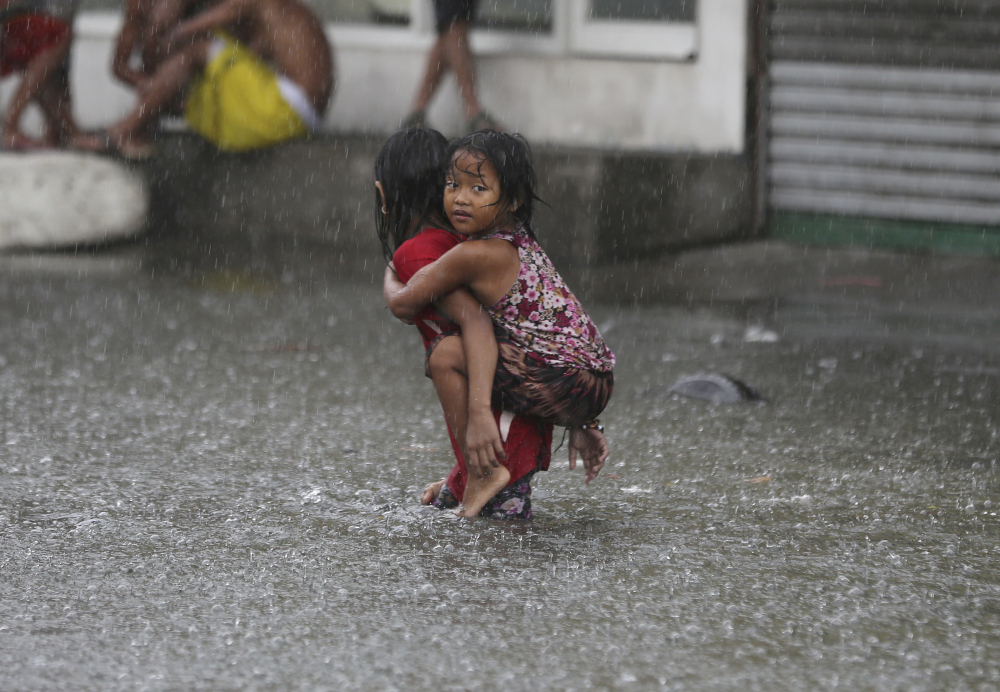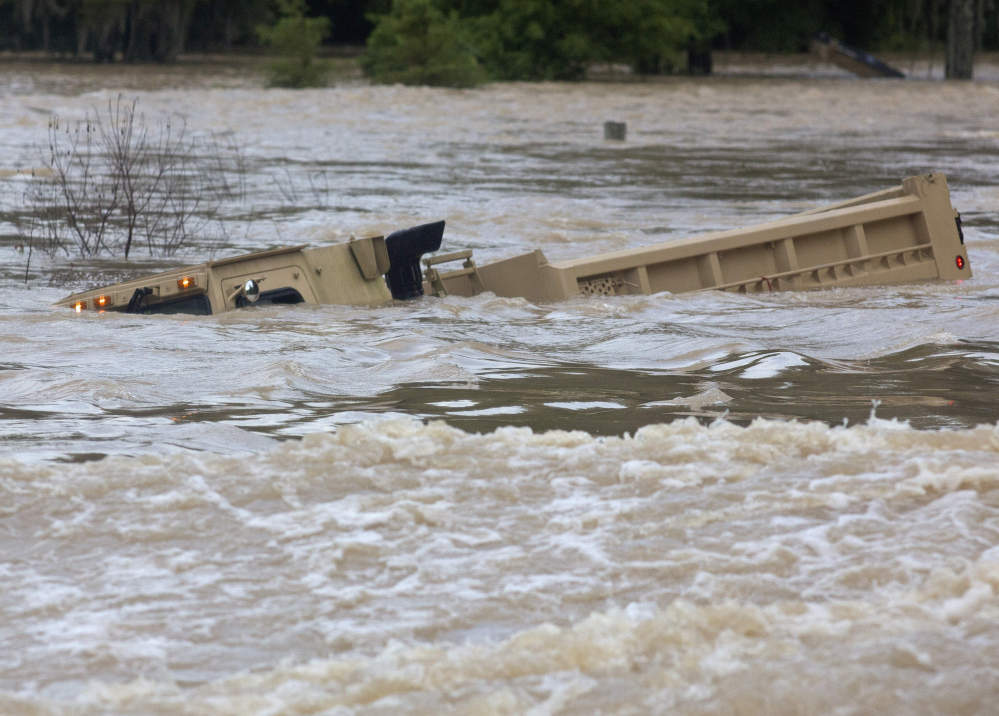WASHINGTON — This summer’s weather was relentless and hellish, crowded with the type of record-smashing extremes that scientists have long warned about.
The season ends Wednesday, and not a moment too soon. Summer featured floods that killed hundreds of people and caused more than $50 billion in losses around the globe, from Louisiana and West Virginia to China, India, Europe and the Sudan. Meanwhile, droughts parched croplands and wildfires burned from California to Canada to China and India. Toss in unrelenting record heat.
From June to August, there were at least 10 different weather disasters that each caused more than $1 billion in losses, according to insurance industry tallies. With summer weather now seemingly stretching from May to September, extreme weather in that span killed well more than 2,000 people.
And that’s without a major hurricane hitting a big U.S. city, although the Pacific had its share of deadly and costly storms, among them Typhoon Nepartak, which killed 111 people in Asia.
“It is representing I think a notch up for the impacts we have had to deal with,” U.S. National Weather Service Director Louis Uccellini said. “We’ve experienced an increasing number and a disturbing number of weather extremes this summer.”
While flooding made the news, the “sneaky” thing about the summer was heat that did not even ease at night, said Deke Arndt, climate monitoring chief at the federal National Centers for Environmental Information in Asheville, North Carolina. When temperatures drop to below 72 at night it allows the body to recharge, plants to grow and air conditioners to be shut off. But this year that didn’t happen enough.
The U.S. as a nation set a record for the hottest nighttime temperatures on average this summer, Arndt said. Tallahassee, Florida, for example, went 74 consecutive days where the nighttime temperature didn’t dip below 72.
From May 1 to Sept. 12, nearly 15,000 daily records for warmest nighttime lows were set in the United States, according to the National Oceanic and Atmospheric Administration data .
“This is one of the clearest signals we expect for climate change,” said Mark Bove, a New Jersey-based senior research meteorologist for re-insurance giant Munich RE, which tracks natural disasters. “It keeps a blanket on you particularly at night. We cannot radiate the heat away at night as the planet used to.”
While records were broken, the summer has “been more notable for the consistency of the heat than individual high-impact heatwaves,” said Blair Trewin of the Australian Bureau of Meteorology and the World Meteorological Organization.
For example, Savannah, Georgia, had a record 69 days in a row of 90 degrees or higher.
Send questions/comments to the editors.





Success. Please wait for the page to reload. If the page does not reload within 5 seconds, please refresh the page.
Enter your email and password to access comments.
Hi, to comment on stories you must . This profile is in addition to your subscription and website login.
Already have a commenting profile? .
Invalid username/password.
Please check your email to confirm and complete your registration.
Only subscribers are eligible to post comments. Please subscribe or login first for digital access. Here’s why.
Use the form below to reset your password. When you've submitted your account email, we will send an email with a reset code.